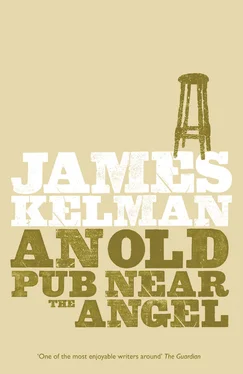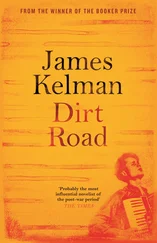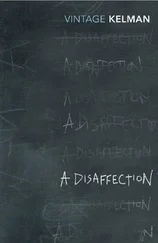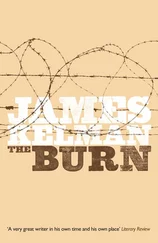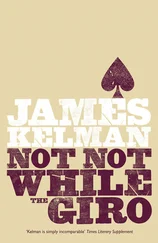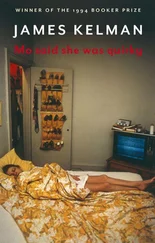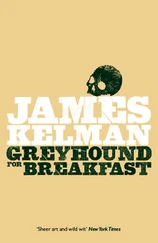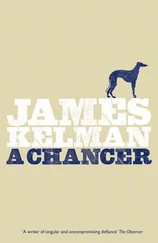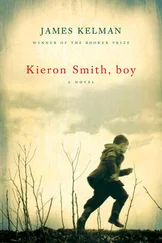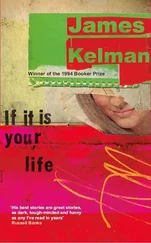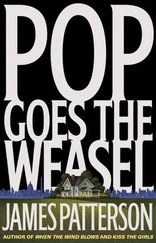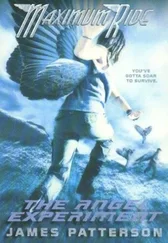But Robert did the genuine alteration on this occasion. Everybody knew about Baxter’s funeral trousers and was waiting for his return. But I planked the trousers so nobody could steal the job off me. That was what the salesmen did to one another when a personality came in the shop, especially football players, and a few football players did come in. Everybody rushed to serve them. Sometimes the manager himself took the job, hoping he would wind up with an order for eleven blazers and eleven pairs of flannels.
I couldnay bear the thought of missing Baxter. I had been a fan since his Raith Rovers days, way before his £17,500 transfer to Rangers. My Uncle Lewie stayed in Kirkcaldy and through there they all knew about Baxter from his days as a Junior.
So what if I missed serving him! What if I was in the smoke-room for a quick puff? What if I skipped out to the betting shop? Or if I went round to the Imperial Billiards Parlour where I usually spent my lunch break watching the money games? A couple of the salesmen came too, there were always huge queues and no time to play. But on this occasion I would not have wasted time on any such nonsense. I sat at the counter and waited. In case of emergencies I planked the trousers so nobody could find them. They would have to come and find me first.
Unfortunately I had to charge Jim Baxter 10/6 (53 pence) for the alteration to his black trousers. Old Robert was one of these ancient codgers you get in the tailoring business. They glower at ye over the top of their specs, and insist on petty detail. I do not care who he is, away out there and get the ten and a tanner!
In those days football players still travelled on public transport. In the shop doorway of Jackson the Tailor a few Rangers players met in the morning. There was a bus stop outside the doorway. The players were going to Ibrox. They came in from the east coast to Central Station, and crossed the road to wait for a 15 bus along Paisley Road West. Baxter was not one of them. He was not a ‘buses’ kind of footballer. When he left Rangers he went to play for Sunderland. I was at Old Trafford when he came with his new Sunderland teammates.
It was one of those strange games that occur from time to time. After a full 90 minutes’ play the final whistle blows, and the fans walk hesitantly to the exits. Gradually their foreheads start wrinkling, they start looking at one another, some scratching their heads, the puzzled frowns begin. The boys are taking notes, waiting to see what they should think. Then one of the younger men says suddenly, What the fuck was that about?
And another one nods. That must have been one of the weirdest games I have ever seen.
Weird! says a grizzled 60-year-old, I have never seen a game like that in my entire fucking puff.
Aye but what happened? says a younger man.
Fucked if I know!
Then a burly man with the look of a retired boxer strides past, shoulders barging, shaking his head, speechless, just fucking speechless. They continue homeward.
At Old Trafford that day the English fans were not too bothered about Baxter one way or another. But many Scotsmen, as well as Irishmen, attended the games at Old Trafford and they were anticipating something special. Baxter wore the number 10 jersey and played inside-left. He was not outstanding but he played well. I thought it was a great game, and very even. Yet it was one of these peculiar spectacles where you want to discuss important pointers, but cannot find the words. United won 5–1. Of course they did. I know they did. But it was still an even game. How come?
Others among the Sunderland Scottish contingent included a fine ex-Aberdeen winger, George Mulhall, also cousins George Herd and Alec Herd. There was a third Herd on the pitch that day, another Scottish player. Man U had just signed Davie Herd from Arsenal — I think for £45,000 — a right-winger. United fans were perplexed by the signing. He was nothing at all like George Best. He looked more like ‘big Yogi’, John Hughes of Celtic, but without the nifty footwork. This was the day Davie Herd scored four goals.
On their way out the ground the Man U supporters were still unconvinced, not willing to concede the point. One of them delivered the classic cliché: Fucking twat, he only kicked the ball four times.
From the tail end of 1966 through to 1969 I lived and worked mostly in London, until Marie and I married in early November. I had been writing for several months and completed a couple of stories from An Old Pub Near the Angel . We had met the previous March, appropriately enough on St David’s Day, her being Welsh. She was working as a shorthand typist. I sold suits on Oxford Street, laboured on a building site down Harley Street, then a building site at the Barbican, plus spells in other jobs. In one of them it coincided we worked in the same place, the Royal Free Hospital, where she had reported from her agency. We were living together but pretended not to know each other.
A busdriver I knew from Glasgow was living in Bracknell, outside of London. He and his wife, Dorothy, had invited me to come and stay the night. I had just met Marie and invited her to come with me. She refused on the grounds of ulterior motivation. But I was just showing off, acting like a cool guy with friends in out-of-the-way places. If I arrived in Bracknell with Marie by my side maybe they would recognise the striking similarity of the image we presented to that early album cover of Bob Dylan and his girlfriend, her on his elbow, photographed in Manhattan.
But maybe not. Chris Harvey was not easily impressed, not then, not now. Back in Glasgow he had been over 21 so could drive buses. I was under 21 so I could not, I was the damn conductor, then serving my third or fourth sentence. Harvey gave me no peace, insisting on the merits of Sartre, in opposition to Camus, of Mann as opposed to Kafka, van Gogh rather than Gauguin, Russell against Wittgenstein; he saw merit in Thomas Hardy and D.H. Lawrence, and thought The Go Between one of the finest novels ever written. I disagreed with everything he said, never having read the damn books, and no wonder. I was unwilling to consider these possibilities, strictly on a point of logic. But Chris is not the model for the character Willie Reilly, busdriving sparring partner of the central character in The Busconductor Hines . For one thing he is English and for another the bastard knew too much, even at 21.
For my and Marie’s wedding night party we had four singles: ‘Lazy Sunday’, The Small Faces; ‘Lay Lady Lay’, Bob Dylan; ‘I Heard It through the Grapevine’, Marvin Gaye; and a nice one by Billy Preston whose title I cannot remember.
A friend in North London, Gavin Allison, gave us the use of the front room in his flat so we could have a party. Gavin was another good reader and we bumped heads frequently, usually on the subject of James Jones, his favourite author.
Marie was pregnant and had to stop work late November. Accommodation in London was not easy to find, not on a labourer’s wage, with a baby on the way. We tramped around looking. Racist stuff still applied. Blacks and Irish were unwelcome, Scots had it easier, but babies were out the question unless one was loaded with dosh. Swansea or Glasgow became the option. We decided on Glasgow. By this time my father was back self-employed and had found that decent wee workshop in Garriochmill Road. He ‘spoke’ for us with the factor, laid down some key money as a wedding present, and we rented the room and kitchen up on the second floor.
Our next-door neighbours were an elderly couple by the name of Bradford. Mr Bradford came from the North of Ireland. He looked and dressed like a proper businessman in the three-piece suit and soft hat. His business was a private lending library in a wee shop across the street: the Garriochmill Library. He charged threepence to borrow a book.
Читать дальше
